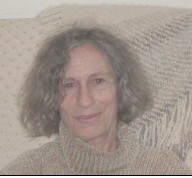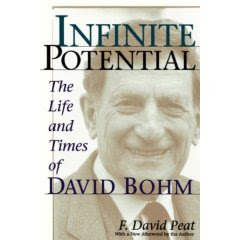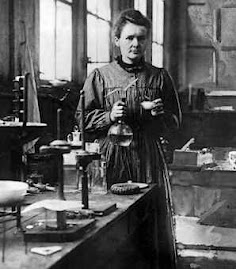I recently published a book titled Understanding Intuition: A Journey In and Out of Science. It explores some foundational intuitions about intuition I experienced and brings them together with a deep dive into the science of intuition. It took me years to write and find a publisher. All told, it was a 2-decade long endeavor. Early in 2018, Academic Press, an imprint of Elsevier, a scientific publisher, issued the work.
February 17, 2019
To Publicize or Not: Is That The Question?
I recently published a book titled Understanding Intuition: A Journey In and Out of Science. It explores some foundational intuitions about intuition I experienced and brings them together with a deep dive into the science of intuition. It took me years to write and find a publisher. All told, it was a 2-decade long endeavor. Early in 2018, Academic Press, an imprint of Elsevier, a scientific publisher, issued the work.
From the experience of my
colleagues at the Women’s Studies Research Center at Brandeis University, I
learned that once you publish a book, your job is to publicize it. Before
publication, I had assumed I would avail myself of all opportunities to promote
the book, and, truth be told, a part of me looked forward to the attention. But
I am also distrustful of the part of me that needs attention and recognition.
I did
try this or that, but almost nothing happened on the publicity front.
Fortunately, I did get two letters from stunningly intelligent readers telling that
they were deeply inspired by the book. This has helped keep me from feeling very
discouraged. More recently the book has received some endorsements from people whose work I greatly respect.
I am
also helped by an experience that occurred during the years I was having trouble
finding a publisher. I came
to recognize over time that the publishing setback was likely only temporary.
Because of the unusualness and importance of the material, I began to feel that
it would eventually find its audience—however that might happen,
and however long it might take.
But the
feeling that the book would eventually be published did not eliminate the discomfort
I felt. Then one evening while sweeping up the kitchen floor after dinner, I
confronted myself with great sincerity about why I still felt so badly about
the situation, even as I felt increasingly confident that in time the book
would find its audience. Then something extraordinary happened.
As I continued to sweep, I
felt the deepest and purist sense of spaciousness and Presence I ever have. My
consciousness was completely altered, at least for a while. I realized that
this transformed mind, which brought with it a sense of being completely safe
and secure in the cosmos, was more important than
publishing the book. The jewel was instead more easy access to this wonderful
feeling of authenticity and quietude.
Although I am a biologist,
I am also a longtime spiritual seeker. I no doubt sublimated early needs that did not
get fulfilled into a search for a higher order in which these needs become
transformed. I have always been drawn to people to who have a deep sense of
Presence. They evoke in me a feeling of safety—a world where one does not
have to fight for attention or for anything else, a world in which we are all
interconnected below awareness and conflicting needs and claims are adjudicated
in an enlightened and welcoming way.
Alas, more permanent
access to this quality of experience may prove even more elusive than
publishing Understanding Intuition. But at least I got a clear
message about what really matters to me. As I emphasize in the last chapter of
the book, we each have two sides. One is focused on meeting survival needs, as
well as survival-associated needs, like success. The other is
focused on authenticity and Presence—on our deepest humanity. The two are not
necessarily in conflict, but because of early childhood circumstances and unmet
needs, they are often at odds with each other.
This split is also
important to understanding intuition. Both
sides have access to intuition, but to different kinds. One kind of intuition may
lead to success. The other, a much more
profound kind, leads to the knowledge of deeper truth and often to inner peace.
Destiny, whatever that
might mean, has taught me a valuable, albeit, at time challenging, lesson. But
now that the book has been out a year, there just might be room for something
new. Perhaps there is a way for me—and for others in certain
pivotal moments in their life—to bring the two dissonant parts
of ourselves closer together?
Does it have to be
either/or? In my case, does it have to be seeking attention to quell what are
now likely unfillable childhood needs, or continuing to feel unseen and unacknowledged
as an aid to finding a more authentic way of being and the higher side of human
nature? This is an open question.
This blog piece might just be
the beginning of an answer! Morever, maybe
the need to get this timely message out to more people can help forge a bond between
these two conflicting attitudes or aspects of self. In our
troubled times, which are so in need of healing, we each must do whatever we can.
Subscribe to:
Post Comments (Atom)















No comments:
Post a Comment